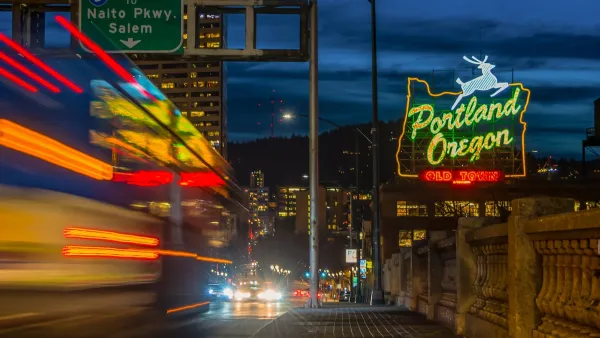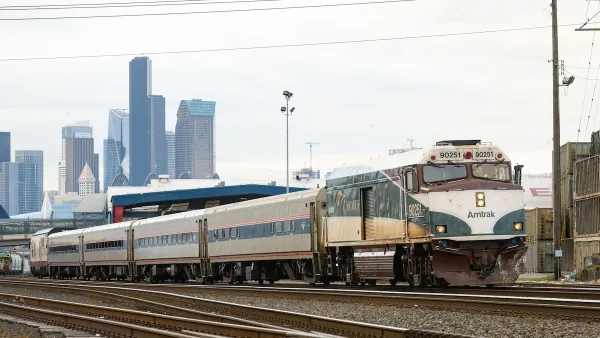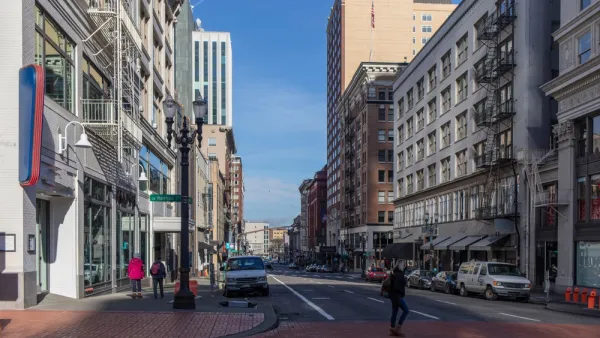DC writer Alec Dubro questions the pursuit of the green car, concluding we should cease its financial support. Though people may prefer the car culture, it would make more sense to pursue a ‘post car future’, citing Portland’s compact neighborhoods.
"The real problem is, though, cars don't move people, cars move cars."
"Even if we were able to produce a 100 mpg, zero pollution vehicles, we'd still need to maintain the infrastructure of roads, bridges, and energy distribution. That means steel, concrete, asphalt and plastics. Just concrete production alone generates as much as 10 percent of all greenhouse gas.
And there's another intractable problem: the very thing that makes tires so useful – comfort, stability, adhesion – also produces immense rolling friction. One reason trains are able to transport people using far less energy per passenger mile is that there are fewer wheels per person and steel wheels have much less rolling friction.
But there's an even more profound problem with building more efficient cars. In 1865, English economist William Stanley Jevons discovered an efficiency paradox: the more efficient you make machines, the more energy they use. Why? Because the more efficient they are, the better they are, the cheaper they are and more people buy them, and the more they'll use them."
Thanks to John Hartz
FULL STORY: The Myth of the Efficient Car

Analysis: Cybertruck Fatality Rate Far Exceeds That of Ford Pinto
The Tesla Cybertruck was recalled seven times last year.

National Parks Layoffs Will Cause Communities to Lose Billions
Thousands of essential park workers were laid off this week, just before the busy spring break season.

Retro-silient?: America’s First “Eco-burb,” The Woodlands Turns 50
A master-planned community north of Houston offers lessons on green infrastructure and resilient design, but falls short of its founder’s lofty affordability and walkability goals.

Test News Post 1
This is a summary

Analysis: Cybertruck Fatality Rate Far Exceeds That of Ford Pinto
The Tesla Cybertruck was recalled seven times last year.

Test News Headline 46
Test for the image on the front page.
Urban Design for Planners 1: Software Tools
This six-course series explores essential urban design concepts using open source software and equips planners with the tools they need to participate fully in the urban design process.
Planning for Universal Design
Learn the tools for implementing Universal Design in planning regulations.
EMC Planning Group, Inc.
Planetizen
Planetizen
Mpact (formerly Rail~Volution)
Great Falls Development Authority, Inc.
HUDs Office of Policy Development and Research
NYU Wagner Graduate School of Public Service




























